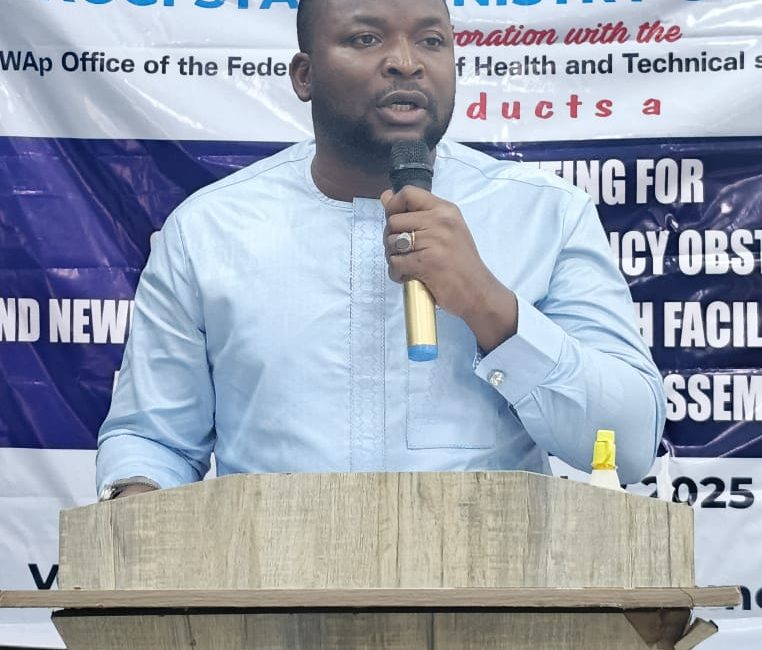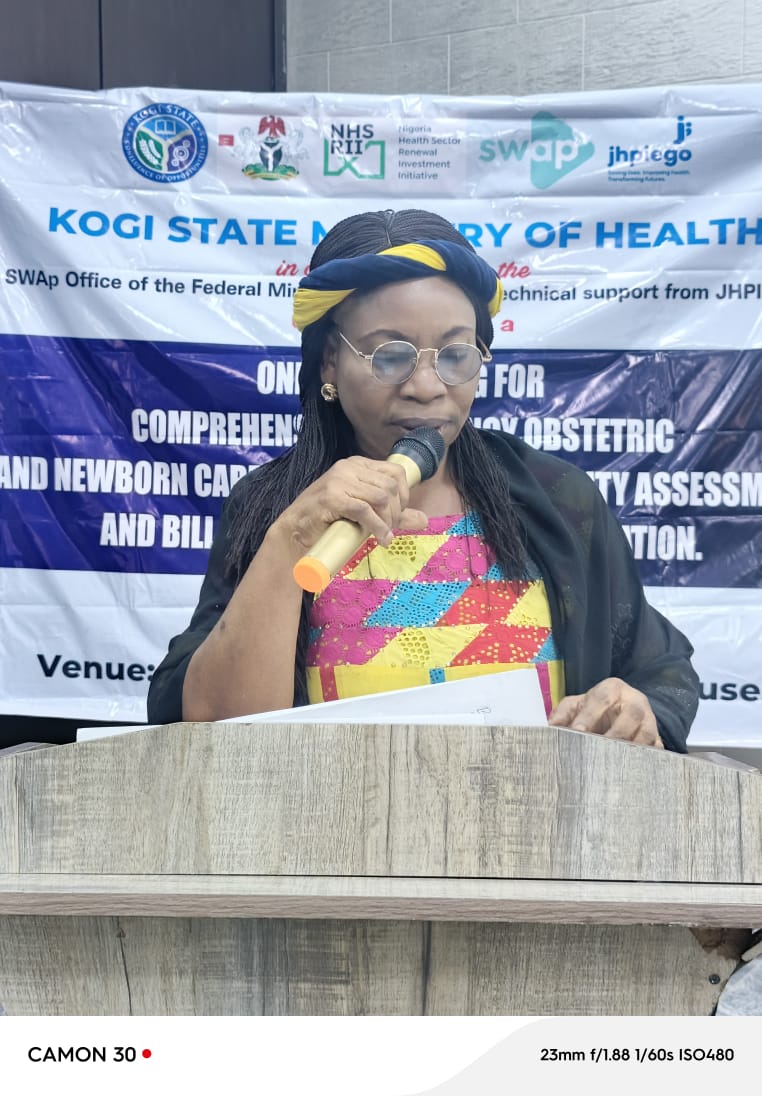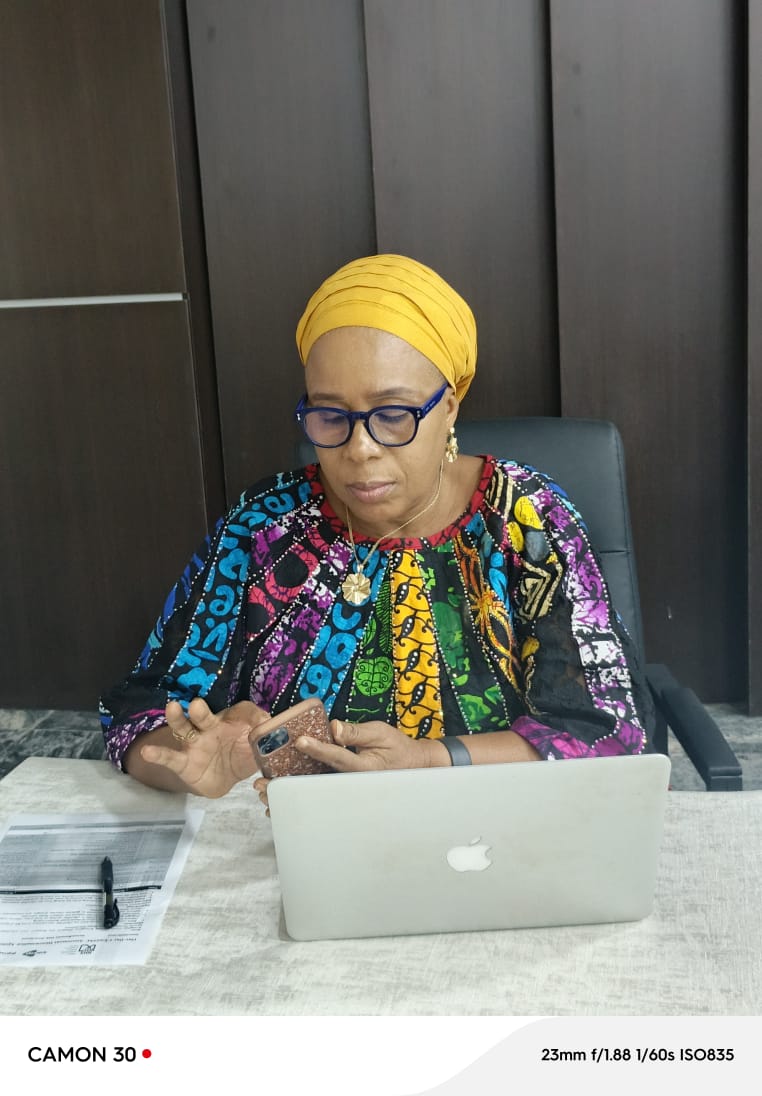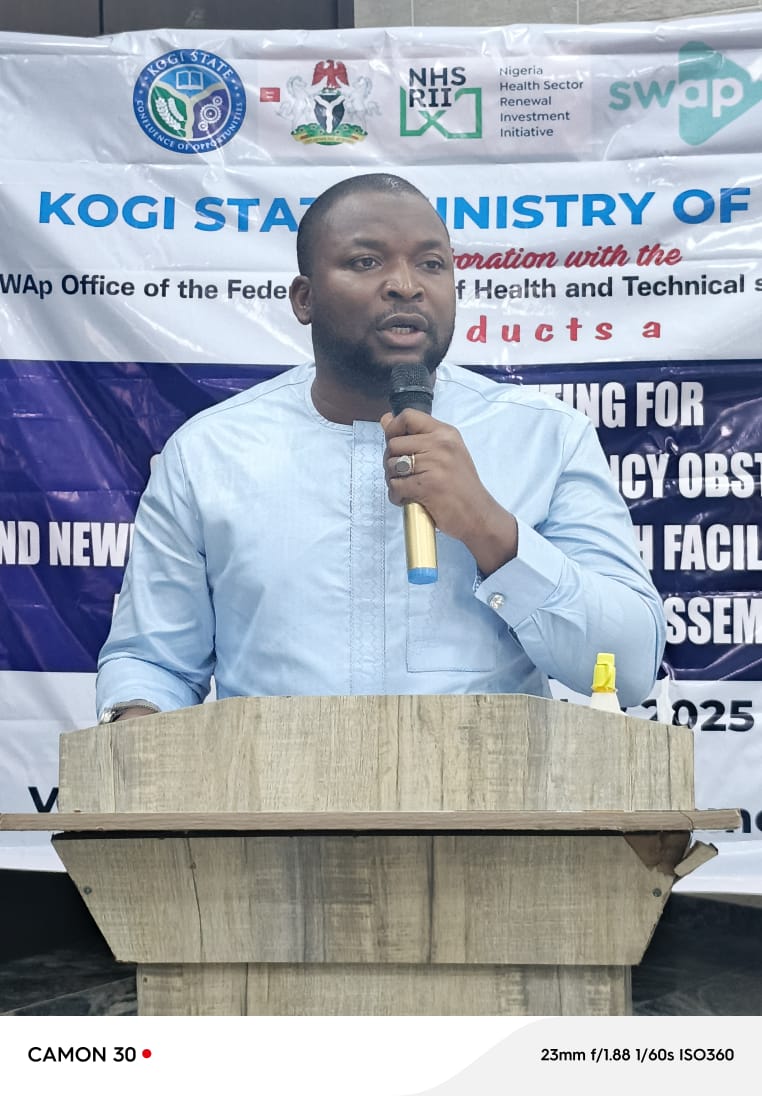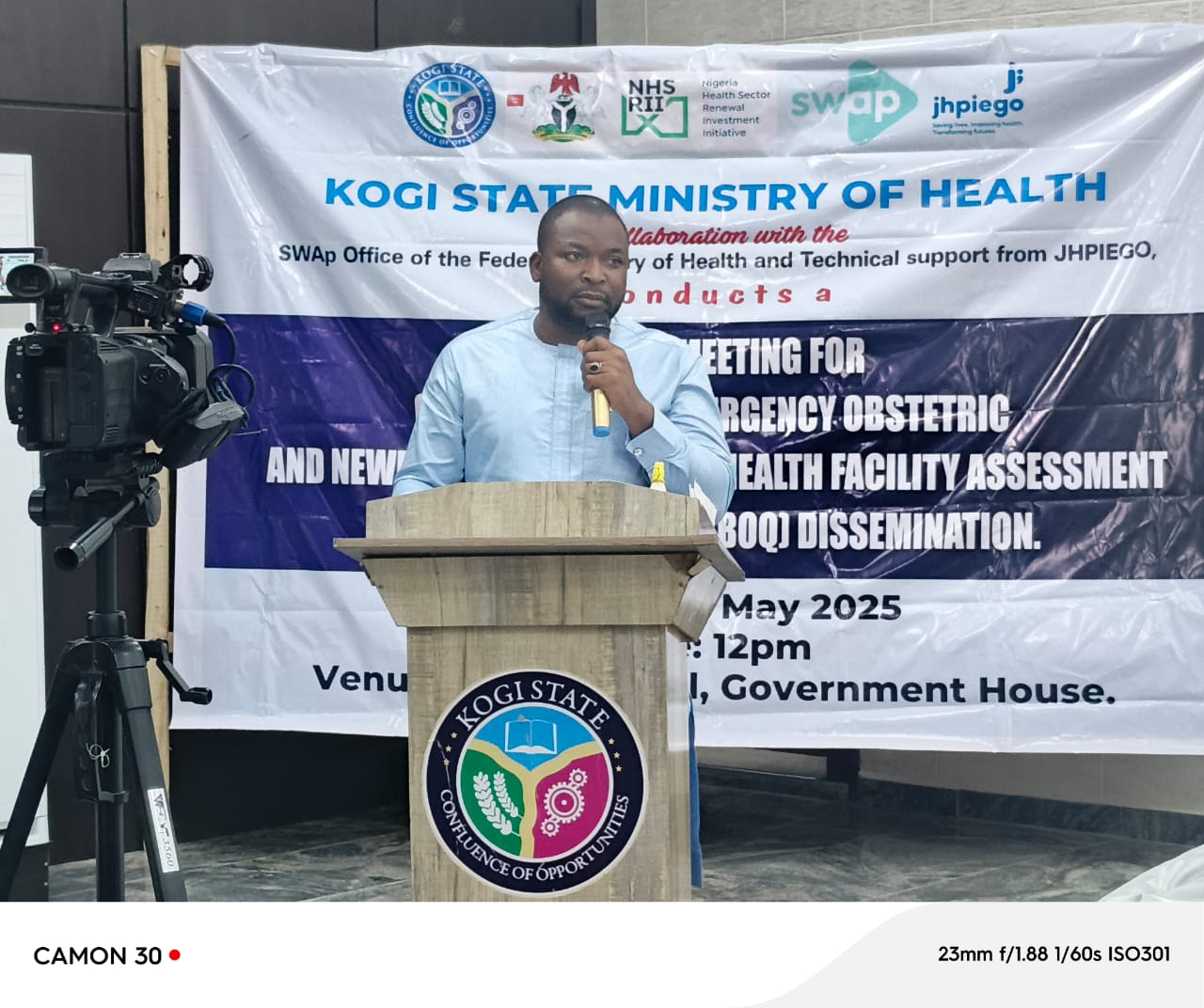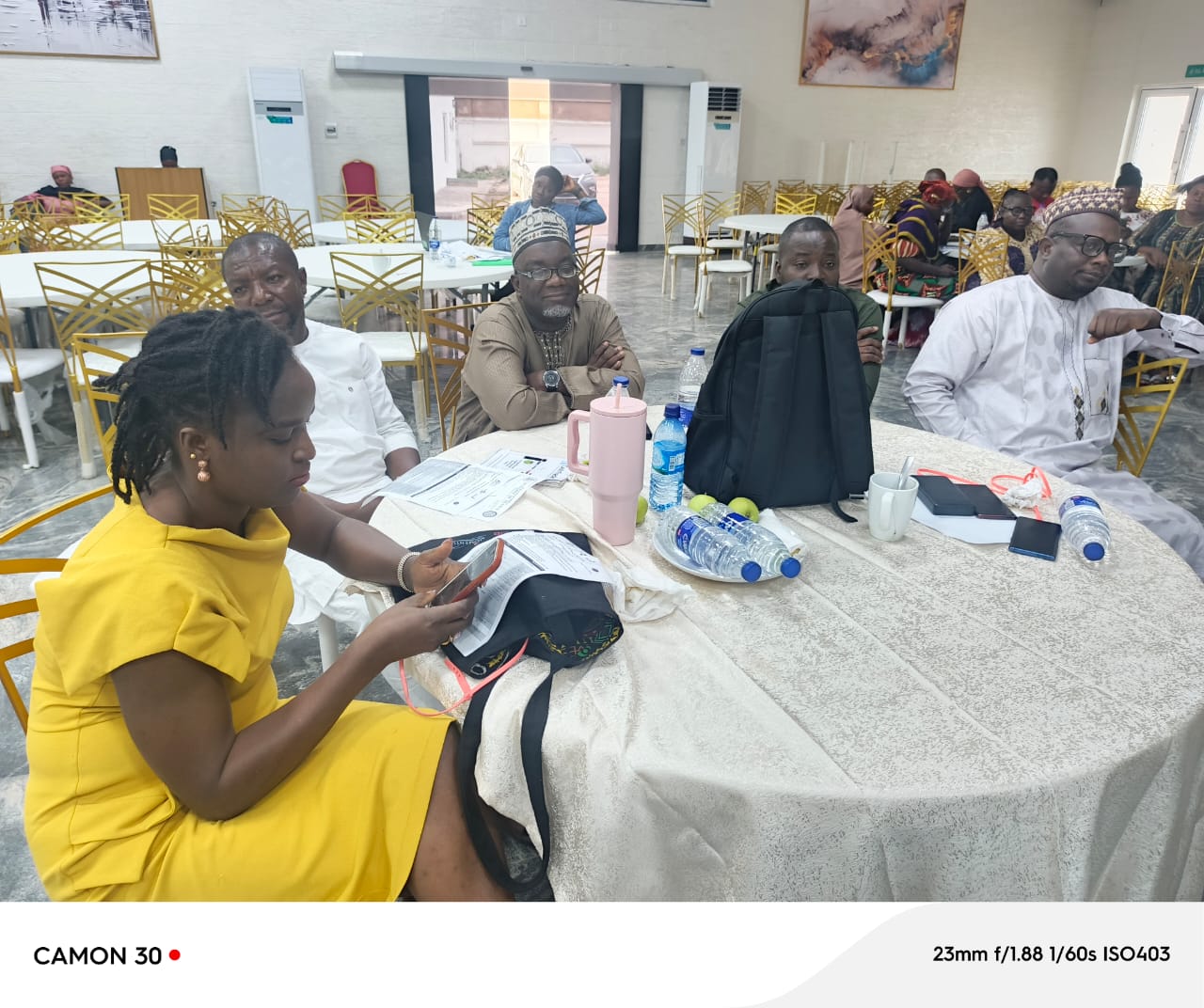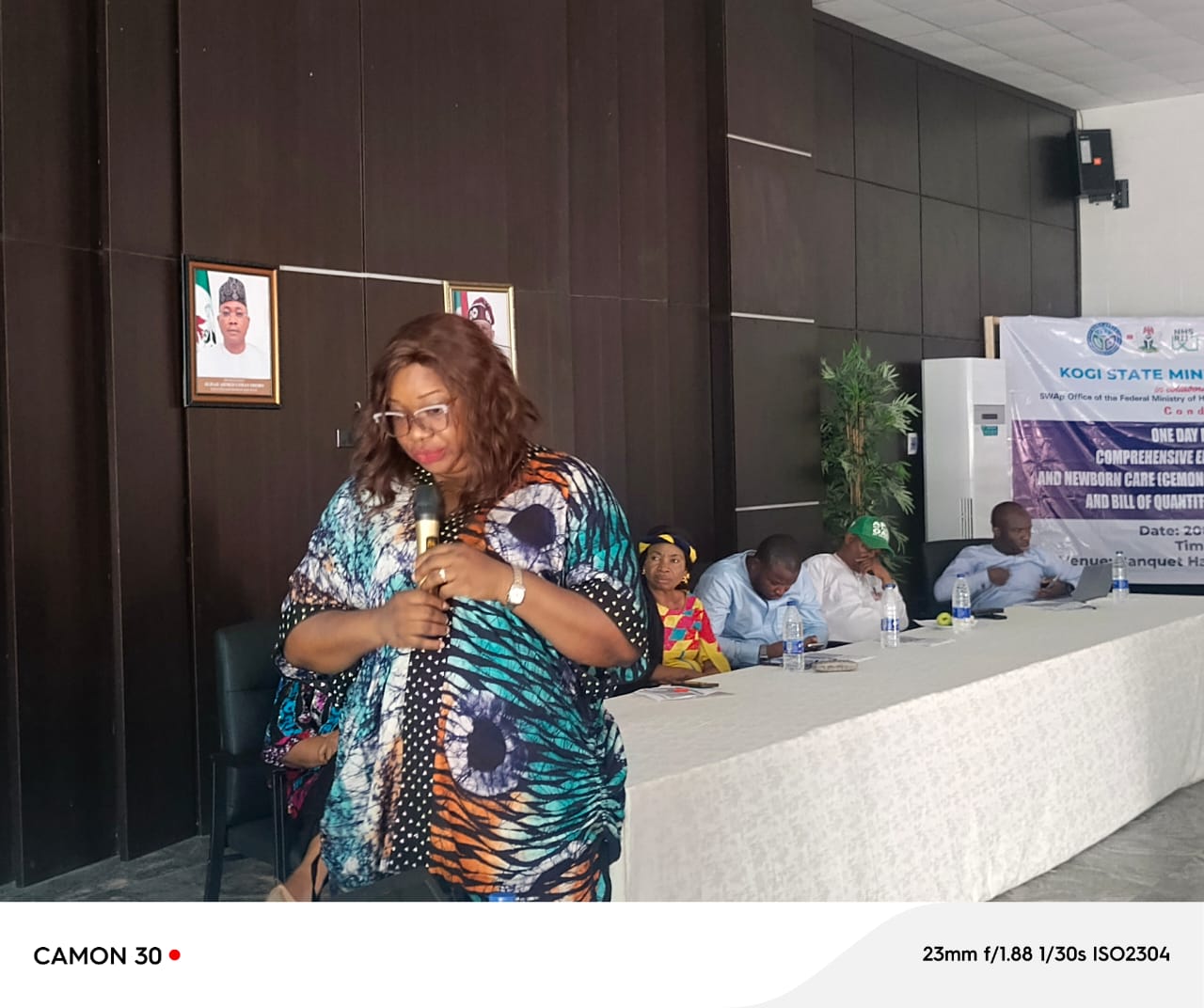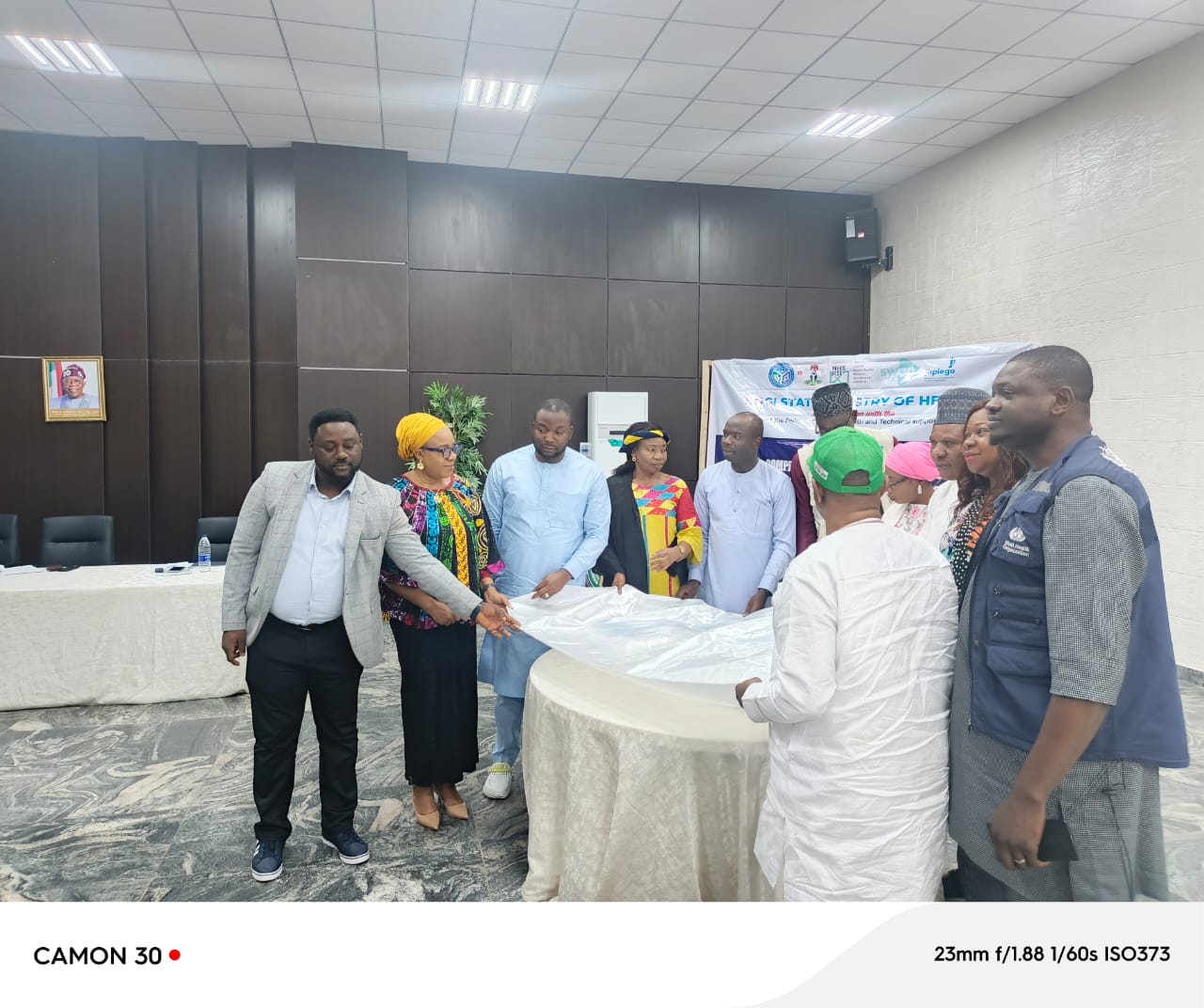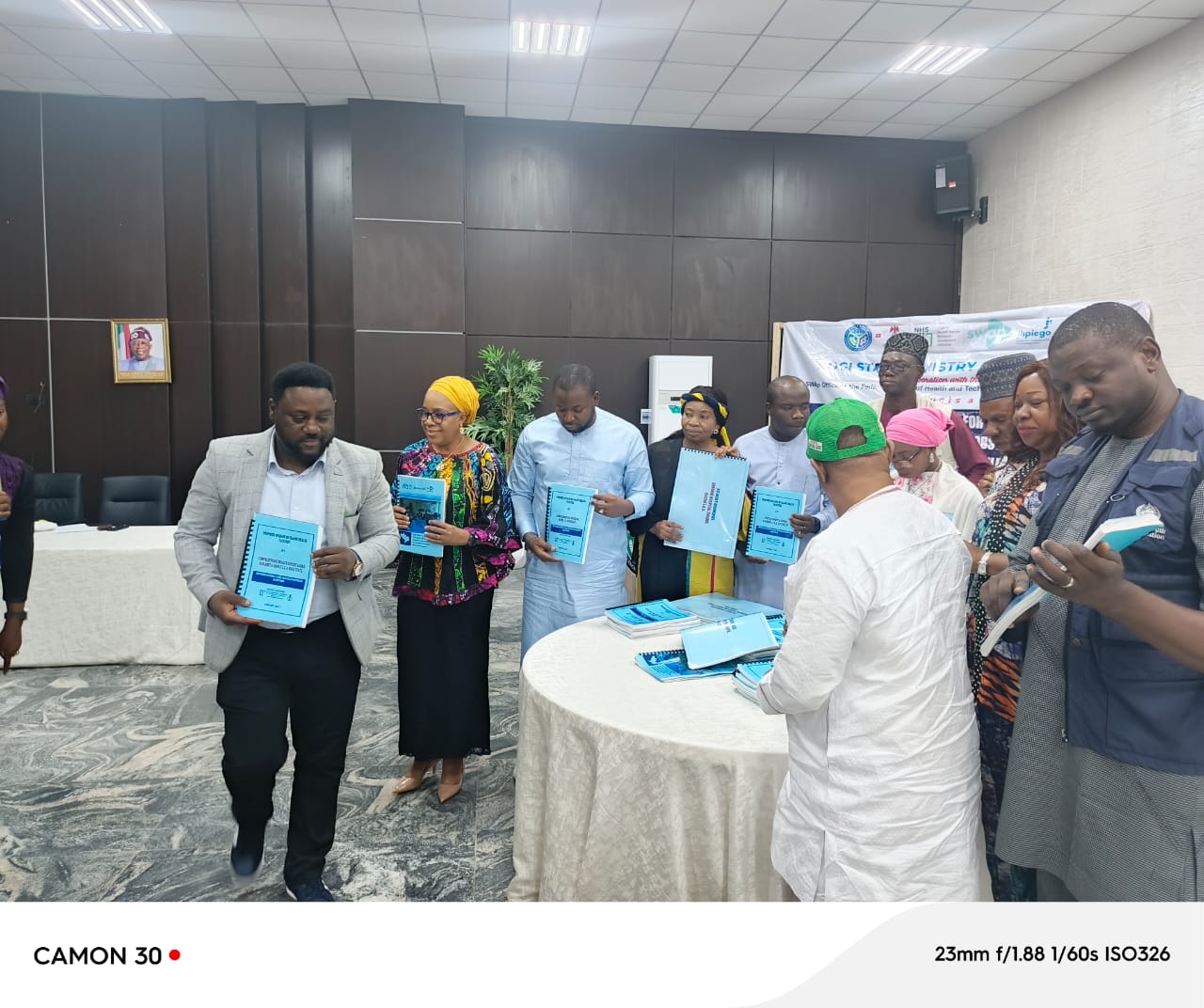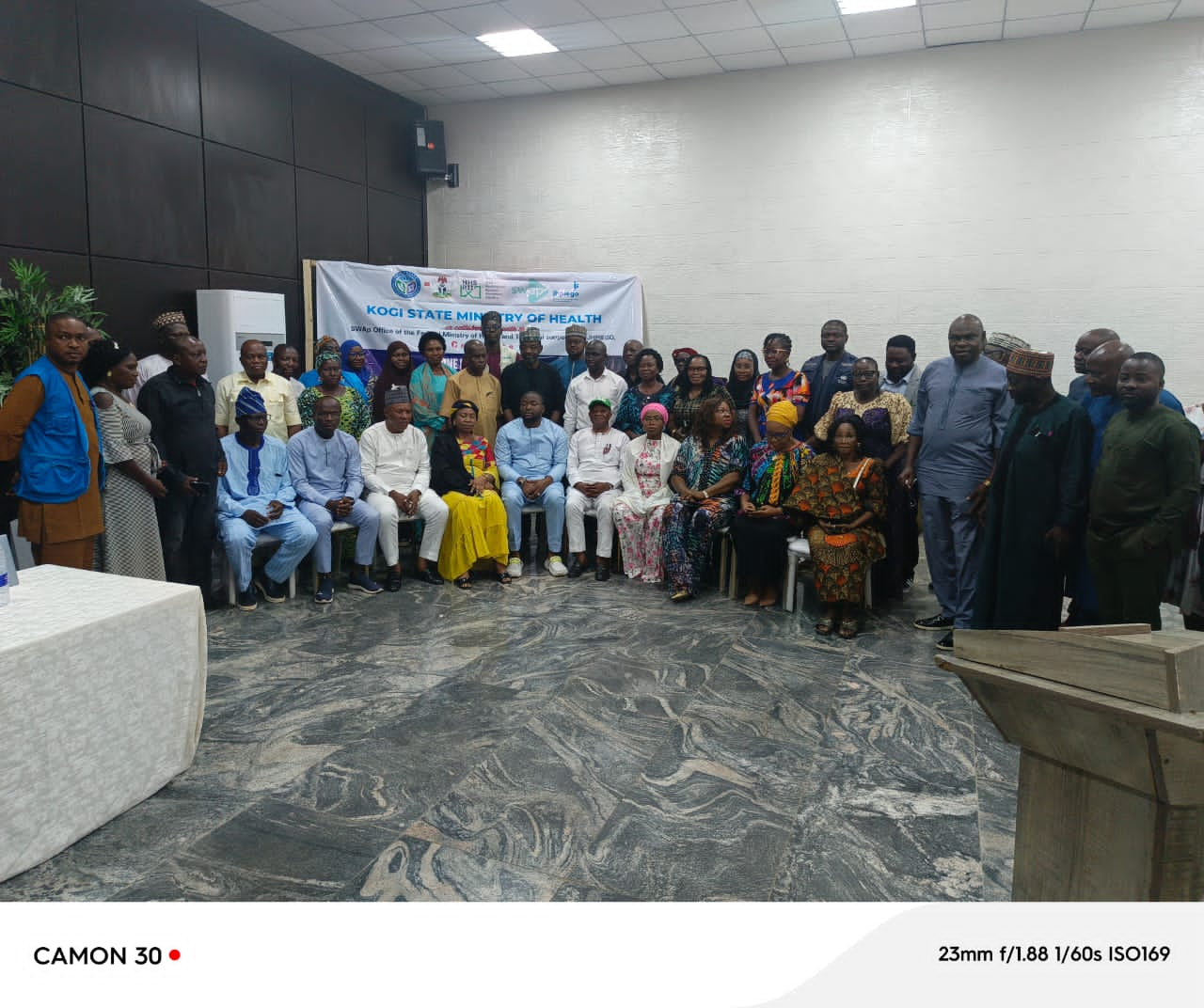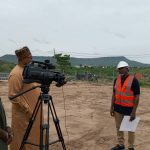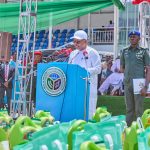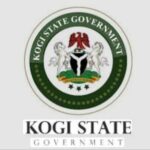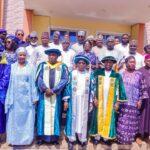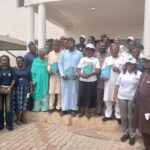Dr. Abdulazeez Adams Adeiza, the Kogi State Commissioner for Health, has underscored the urgent need for enhanced access to quality emergency obstetric and newborn care, describing the current state of maternal and newborn health in Nigeria as a “ticking time bomb.”
During a one-day CEmONC (Comprehensive Emergency Obstetric and Newborn Care) health facility assessment report, the Dissemination Agenda held in Lokoja, the capital of Kogi State, Dr. Abdulazeez highlighted the alarming statistics that underscore this crisis: Nigeria faces a staggering rate of 512 maternal deaths per 100,000 live births, according to the 2018 Nigeria Demographic and Health Survey (NDHS), and 41 newborn deaths per 1,000 live births, as reported in the 2024 NDHS. “These figures represent more than mere statistics; they signify lives lost, families devastated, and communities left to grapple with the aftermath,” he stated.
Dr. Abdulazeez emphasized that strategic investments in CEmONC services, comprehensive training for healthcare providers, and the availability of essential medications are critical to addressing this pressing issue. “Let us unite in our efforts to strengthen our healthcare system and ensure that every woman and newborn has a fighting chance,” he urged.
The Commissioner also highlighted the significance of the CEmONC health facility assessment dissemination agenda, which aims to identify gaps and opportunities within CEmONC services, drive necessary policy reforms, mobilize resources, and secure sustainable funding. Through a series of presentations and collaborative discussions, stakeholders have begun to outline actionable strategies to tackle the inherent challenges and are committed to taking concrete steps toward reducing maternal and newborn mortality rates.
Expressing optimism about the outcomes of the meeting, Dr. Abdulazeez stated, “I believe this gathering will provide a clear roadmap for enhancing CEmONC services and ultimately saving lives. “Let’s work together to make a meaningful difference in the lives of our citizens and ensure that every life is valued and protected,” he urged.
The Permanent Secretary of the State Ministry of Health, Mrs. Enehe Dorcas Omeneke who welcomed participants to the meeting aimed at strengthening Comprehensive Emergency Obstetric and Newborn Care (CEmONC) services in the state ,expressed her concern about the high number of maternal and newborn deaths, noting that many lives could be saved with the right care at the right time.
She thanked healthcare workers, policymakers, and partners for their tireless efforts, saying their work has not gone unnoticed. According to her, the meeting would provide an opportunity to discuss key findings, identify gaps, and explore opportunities for improvement.
Mrs. Omeneke urged participants to work together to develop a clear roadmap for enhancing CEmONC services and reducing maternal and newborn mortality. She wished them a productive and engaging discussion.
The national SWAp Coordination office representative from the Federal Ministry of Health, Mr. Ode Ajogene highlighted the interest of the Coordinating Minister of Health and Social Development in reducing maternal and newborn mortality data indices. He noted that the Minister supports initiatives aimed at addressing these issues.
Mr. Ajogene assured that the Ministry is fully committed to bringing to an end the problem, underscoring the government’s dedication to improving healthcare outcomes for mothers and newborns.
Barrister Oris Ikiddeh, Director of Communication, JHPIEGO Nigeria, said the Federal Ministry of Health’s nationwide assessment initiative was initially deemed impossible due to high costs. However, with the help of the SWAp office and the Jhpiego team, the ministry was able to develop the necessary tools for the assessment.
The assessment was conducted in two phases, evaluating the infrastructural capacity and competence of selected healthcare facilities.
Dr. Grace, the CEmONC focal person, played a crucial role in coordinating the selection of data collectors from each LGA in Kogi State.
The government partnered with Columbia University, USA, to provide valuable inputs.
Oris Ikiddeh praised the coordinating minister of health and social development for his dedication and intentionality in driving this initiative forward. The federal government aims to establish one comprehensive healthcare centre in each local government area, a significant undertaking that could greatly improve healthcare outcomes.
The initiative has been hailed as a step in the right direction, with stakeholders urging states to collaborate with the federal government to achieve these goals.
The World Health Organization (WHO) Representative, Dr. Gwomson Dauda commended the efforts of stakeholders in strengthening comprehensive emergency obstetrics and newborn care services in Kogi State. Speaking at the dissemination meeting, Dr. Dauda acknowledged the presence of esteemed guests, including the CMD HMB, and thanked the SWAp Office representative for travelling to Kogi State for the meeting.
He emphasized the significance of the meeting, stating that it marks a crucial step forward in improving maternal and newborn health outcomes. The WHO representative highlighted that the health facility assessment and bill of quantities reports represent not just data but the experiences of women and children, as well as the challenges faced by healthcare workers and facilities.
Dr. Dauda assured that the state government, along with implementing partners, will work with the findings presented to roll out meaningful changes. He reiterated the commitment to strengthening health systems, building capacity, and ensuring the delivery of people-centered and resilient services.
The WHO representative urged stakeholders to work together to recommend solutions that will change the story of maternal and newborn health in Kogi State and Nigeria as a whole.
Also speaking,the Special Adviser to the Governor on Health,Dr.Abu Jibril Okikiri noted that the comprehensive emergency obstetric and newborn care health facility assessment report is crucial in determining Kogi State’s preparedness to handle emergencies related to pregnancy, labor, and delivery. The assessment has revealed that while some local governments in the state are capable of providing quality services, others require improvement. To address this, the state government will provide infrastructure and facilities to enhance productivity and service delivery.
The assessment highlights the need for Kogi State to be more prepared to prevent mortality and morbidity. To achieve this, stakeholders, including commissioners from the state and federal government, the Ministry of Health, and implementing partners, have come together to discuss the way forward.
I’m confident that the state government, under the leadership of Governor Dr. Usman Ahmed Ododo is fully prepared to address the inherent challenges. The governor has initiated several programs, including revitalization of health facilities and employing more health workers. Funds have also been approved for each health facility integrated into the program to meet the challenges.
The stakeholders, including donor agencies like the World Health Organization and UNICEF, are working together to develop a template that will ensure Kogi State meets its expectations. Their goal is to achieve equitable health service delivery across the state, with a focus on emergency situations and reducing maternal and neonatal deaths.
Dr. Grace Afolabi, the Kogi State Focal Person for Comprehensive Emergency Obstetric and Newborn Care (CEmONC), presented the key findings from the health facility assessment emphasising on the critical importance of enhancing resource allocation for healthcare, investing in the capacity building of healthcare providers, and improving health facility infrastructure. The several key recommendations presented are:
The selected health facilities should undergo upgrades to ensure they possess the necessary infrastructure to deliver high-quality services and meet essential safety standards.
There is an urgent need to elevate all selected health facilities to uniform standards to guarantee equitable access to quality healthcare services.
The human resources for health require immediate attention, with a particular emphasis on supporting healthcare workers in the designated facilities.
Dr. Ayo Olayemi, the Chief Medical Director of the Kogi State Hospitals Management Board, highlighted the significance of this event in addressing critical gaps in healthcare, particularly concerning maternal and newborn health care needs. He commended Governor Alhaji Ahmed Usman Ododo for his proactive measures aimed at comprehensively addressing healthcare challenges in the state.
Dorothy Onoja
PRO
Ministry of Health

